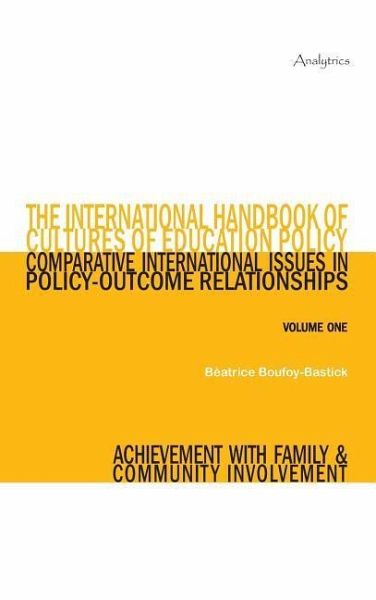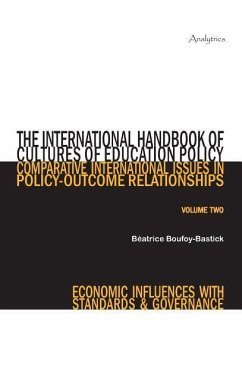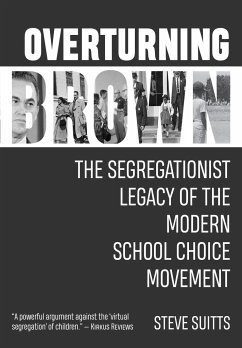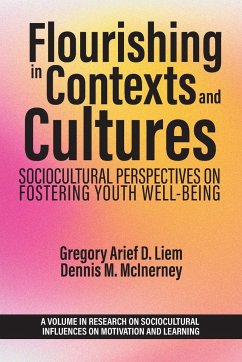
The International Handbook of Cultures of Education Policy (Volume One)
Comparative International Issues in Policy-Outcome Relationships - Achievement with Family and Community Involvement
Herausgeber: Boufoy-Bastick, Beatrice
Versandkostenfrei!
Versandfertig in über 4 Wochen
53,99 €
inkl. MwSt.

PAYBACK Punkte
27 °P sammeln!
This is the third handbook in the series 'International Cultures of Education'. It is the work of 131 authors and associate editors from 29 countries and is in two volumes. This is the first volume and it addresses Education Policy relevant to 'Achievement and the Involvement of Families and Communities'. This third handbook is in part an international response to the devastating effects of Neoliberal policies on government-controlled mass education around the world. Education builds Cultural Identities - the rich possibilities of who we can be. The problem in education addressed here, put sim...
This is the third handbook in the series 'International Cultures of Education'. It is the work of 131 authors and associate editors from 29 countries and is in two volumes. This is the first volume and it addresses Education Policy relevant to 'Achievement and the Involvement of Families and Communities'. This third handbook is in part an international response to the devastating effects of Neoliberal policies on government-controlled mass education around the world. Education builds Cultural Identities - the rich possibilities of who we can be. The problem in education addressed here, put simply, is Neoliberal policies on government-controlled mass education around the world are diminishing the diversity of cultural Identities both of educationists and of students. The performativity of neoliberal enculturation makes immoral neoliberal academics from traditional educators. The pedagogy of neoliberal enculturation reduces the infinite potential of students to only that of 'Employee-ment' - the Cultural Identity of an ideal employee. Further, the neoliberal education policies, which privilege only monetary indicators for maximising competition whilst minimising cost, have overall effects of reducing educational resources, reducing employment and greatly increasing the burdens of poverty. This handbook offers a novel integrative approach and alternative resolutions to these international issues and concerns reported in its forty-two chapters by using a Culturometric analysis of related global and local (glocal) influences of neoliberal policy on education from the unifying fundamental perspective of individual and institutional Cultural Identity - its expression, promotion and survival.














